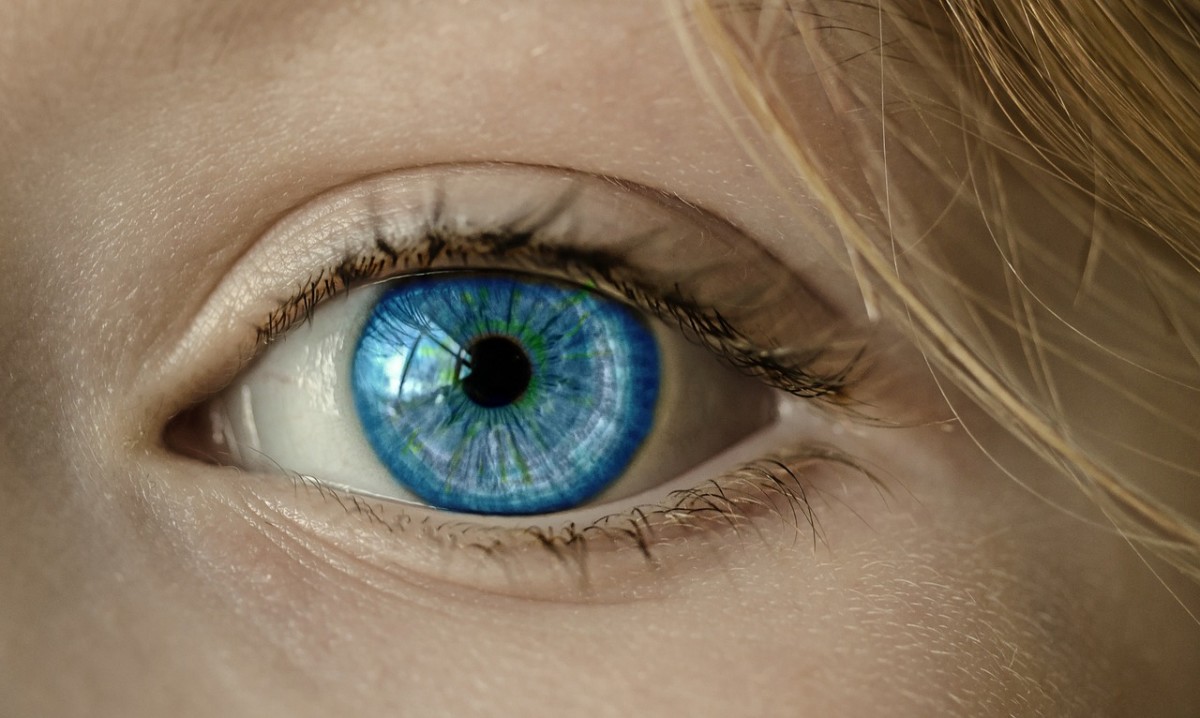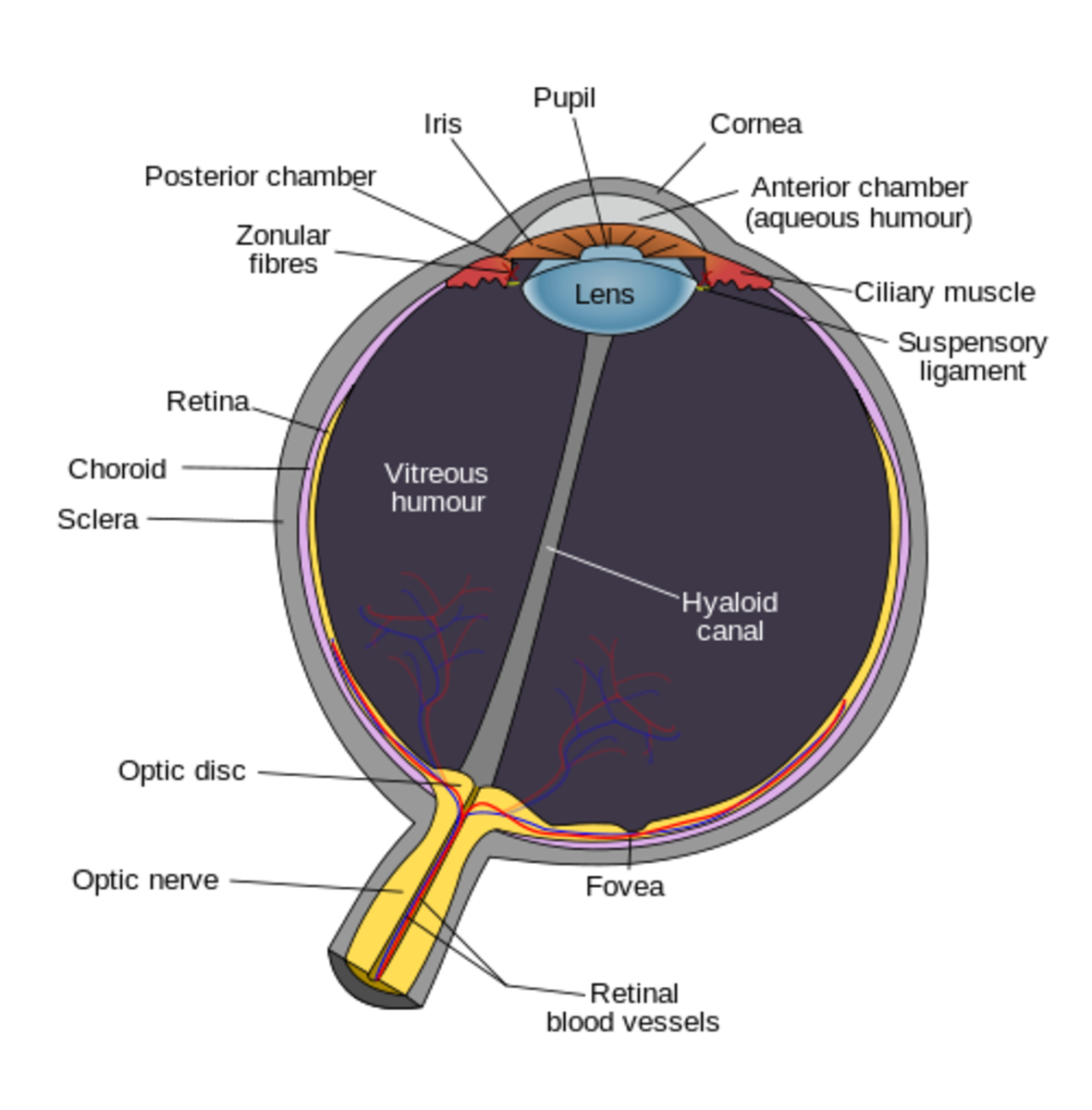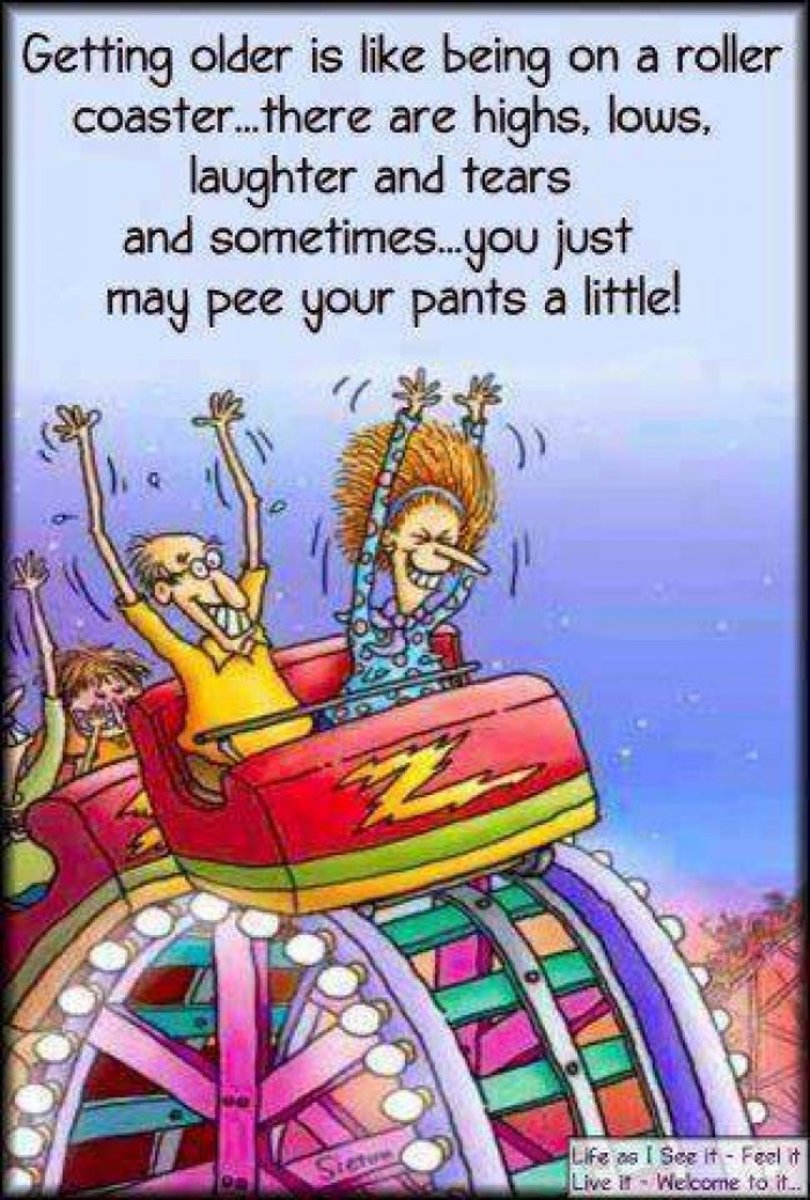Macular Degeneration in Older Adults
Age-related macular degeneration is a leading cause of vision problems in older adults. Because it affects the area of the retina responsible for clear central vision it can have a negative impact on quality of life, causing difficulties with activities such as reading or driving.
The Retina and Macula
The retina is a layer of tissue that lines the interior back wall of the eye. Photoreceptors in the retina sense the presence of light, and convert that information into electrical impulses that travel along the optic nerve to the brain. The brain then translates those impulses into visual images.
The macula is the small, sensitive part of the retina which is responsible for crisp, clear, colorful central vision. Therefore, the degeneration of the macula that can occur in older adults leads to an impairment in that central field of vision.
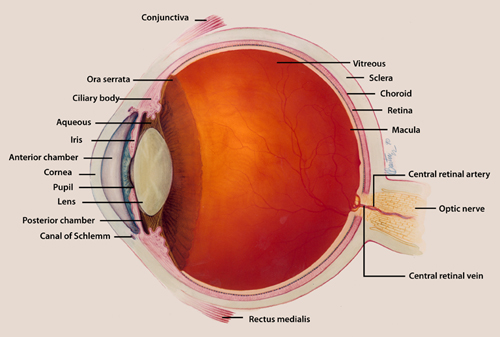
Types of Macular Degeneration
Macular degeneration can be classified as either “dry” or “wet.” Dry macular degeneration is far more common, and can progress slowly over a period of years. The appearance of “drusen,“ or yellow deposits under the lining of the retina, can be observed during an eye examination by an ophthalmologist. Macular degeneration can occur in one or both eyes, and the symptoms may not be noticeable at first. As the macula deteriorates, however, a gradual blurry spot in the central field of vision develops.
The more serious--and less common--form of macular degeneration is the “wet” form. In this type, blood vessels begin to grow in the region of the macula. These new blood vessels begin to leak blood and fluid, causing the macula to swell. Wet macular degeneration can progress more rapidly than dry, and can be more serious. However, the dry form of macular degeneration can progress and lead to the wet form, leading to increased vision loss.
Normal Vision

As seen with macular degeneration
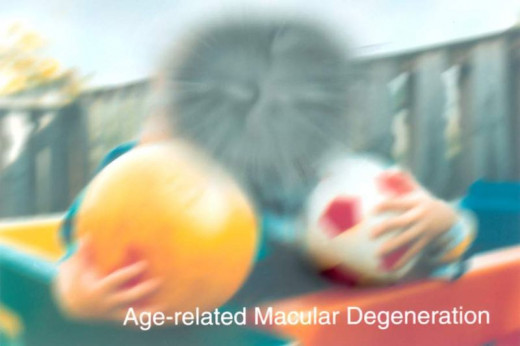
Symptoms of Macular Degeneration
Macular degeneration is characterized by a painless loss of vision. Adults in the early stages may not notice changes in vision, especially if the macular degeneration is present in only one eye. Frequently, the first symptom may be that the older adult notices blurry words while reading. Other symptoms include:
- A shadowy or dark spot in the central field of vision
- Difficulty seeing faces clearly
- Increased difficulty in adjusting to changes in lighting when entering a dark room
- A general haziness or mistiness in overall vision
- Decreased intensity of colors
- The need for brighter lighting when reading or performing close-up tasks
- The perception that straight lines are wavy, such as when viewing a grid
- A blind spot in the central field of vision
Amsler Grid
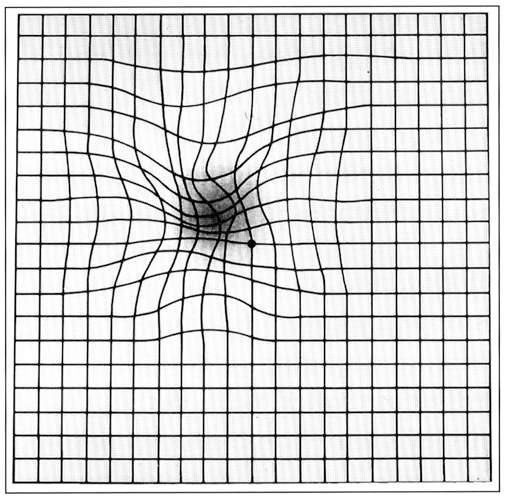
Diagnosis and Treatment
Macular degeneration is usually diagnosed through an ophthalmology exam using eye drops to dilate the pupils. The doctor will examine the eye for the presence of drusen and observe the appearance of blood vessels. He or she may perform an angiogram if a more detailed view of the blood vessels is needed. In this case, an IV containing dye is inserted into the arm and as the dye makes its way throughout the circulatory system it highlights blood vessels, including those in the eye.
The doctor may also perform a vision test using an Amsler grid to determine whether there is an impairment in central vision.
Although there is no cure, there is some evidence that supplements such as beta-carotene, lutein, Vitamins C and E, and zinc may help to slow the progression of dry macular degeneration. There are several treatments available for wet macular degeneration including photodynamic therapy, laser photocoagulation, and medications that can be injected into the eye. Treatment of macular degeneration is an active research area, so additional treatments and medications may become available in the near future.
Coping with Macular Degeneration
The diagnosis of macular degeneration can lead to feelings of sadness and loss, and the fear of not knowing how the disease will progress. The emotional support of friends and family can be especially important, but there are adaptations in the home can help to deal with symptoms as well:
- A handheld magnifier can help with close-up activities such as reading or doing crossword puzzles.
- Brighter lighting in the home can make seeing household objects easier.
- Reading may be more comfortable if large-print books are used.
- Clocks with large numbers and remote controls and telephones with big buttons can be helpful.
- A large-screen TV may make watching TV more enjoyable. Adjust the seating position to take advantage of peripheral vision, or practice viewing the screen with the “blind spot” slightly above the screen.
- Special glasses with magnifying lenses may be useful. Talk to the ophthalmologist about whether this would be helpful.



